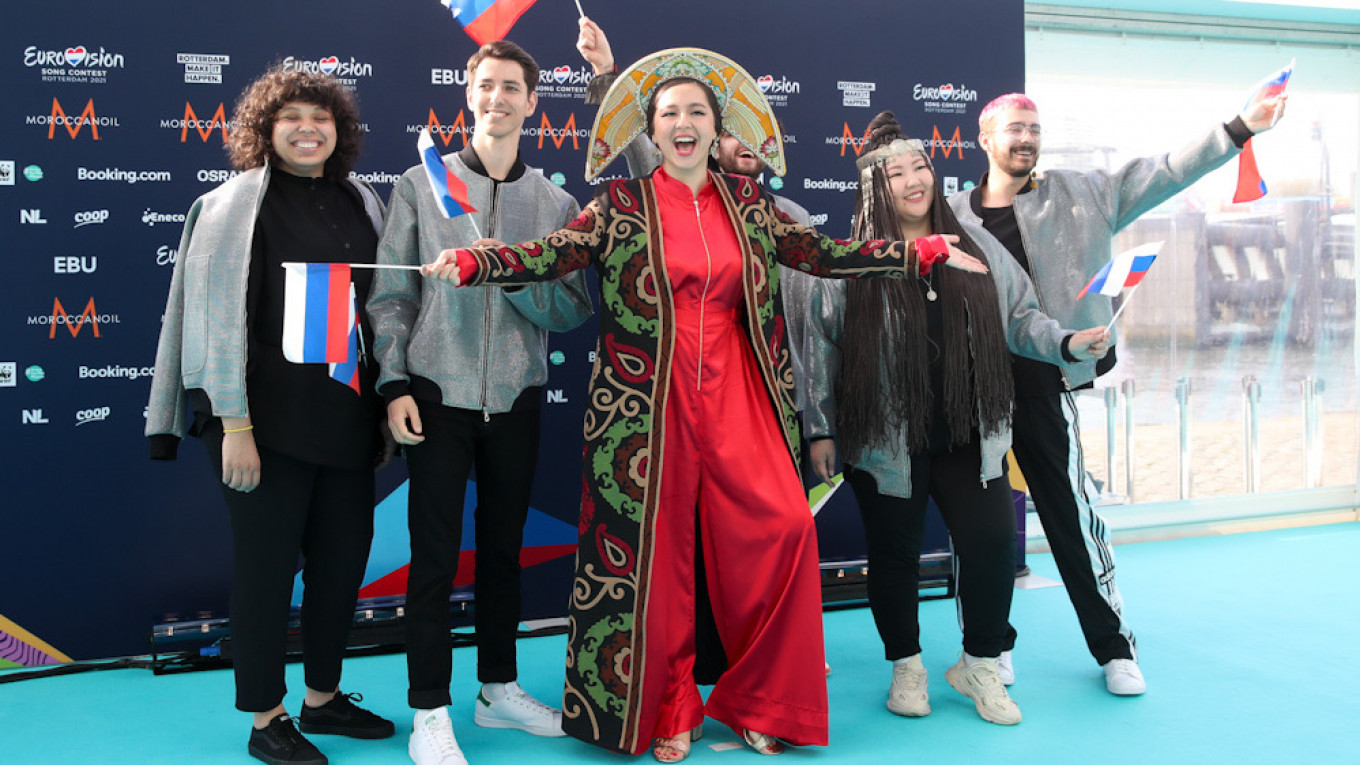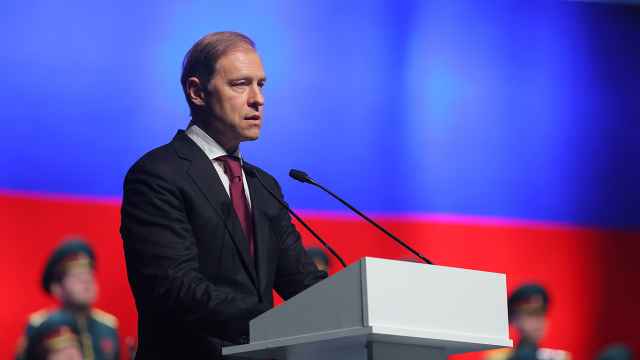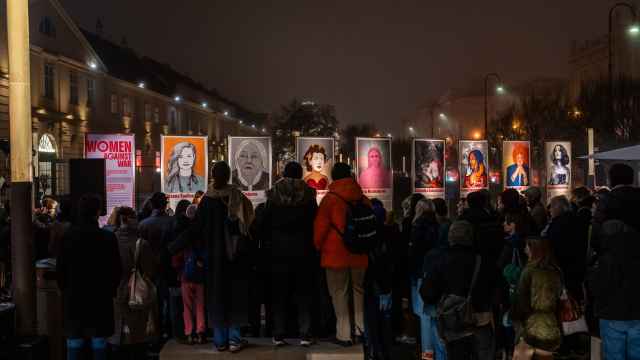Manizha Sangin has never been your typical Russian popstar.
A refugee from Tajikistan and outspoken pro-LGBT feminist, the art pop singer’s March selection by public vote on state television to represent her adopted country at this year’s Eurovision Song Contest in the Dutch city of Rotterdam stunned Russia’s musical establishment.
With Russia’s turn towards social conservatism deepening amid laws clamping down on homosexuality and decriminalizing domestic violence, the 29-year-old singer, who performs as Manizha, seems to many a rebuttal of all that the country has come to stand for in the Putin era.
In a column for the liberal newspaper Novaya Gazeta written shortly after Manizha’s selection, journalist Vyacheslav Polovinko described the pick as “a declaration of war” on Russia’s influential traditionalists.
Manizha — a Tajik singer in a country where Central Asian migrants face routine racism and discrimination — has never hidden her political views.
Having combined her music career with pro-refugee activism, Manizha released 2019’s Mama to coincide with the launch of an anti-domestic violence SOS app.
Her selection for Eurovision is a high-profile platform for those views.
While Eurovision is seen as a camp-fest in European countries and rarely attracts serious artists, it has an outsize profile in Russia. Entrants usually score well among the voting public and contenders from pop stars Filip Kirkorov and Dima Bilan to rave group Little Big have gone on to enjoy major success at home.
Manizha represents an unfamiliar artistic turn for the country that won the 2008 contest with Dima Bilan’s R&B inflected pop track, Believe.
Spanning art pop, hip hop and soul, Manizha’s work — which started in the form of fifteen second clips uploaded to Instagram before growing into her 2017 debut album Manuscript — has little of the crowd-pleasing chart topper about it.
Delivered in an idiosyncratic blend of English and Russian and incorporating everything from acoustic Russian folk motifs to gospel choirs, Manzha’s origins in Tajikistan — which she left as a toddler during its post-Soviet civil war — are a constant theme.
In a slick music video for 2019’s “Nedoslavyanka” (Not Quite a Slavic Woman), Manizha presents a cartoonish, cliche-ridden image of life in her native Central Asia, haggling in bazaars, fighting with ninjas and handing out Russian passports to would-be immigrants.
It’s a tongue-in-cheek tone repeated in Russian Woman, the feminist anthem that Manizha will take to Rotterdam in a bid to win Russia a second Eurovision title.
Taking to the stage in traditional folk costume, before removing it to reveal red overalls beneath, the song’s lyrics embrace the distinctive brand of body-positive feminism that have marked Manizha out in a Russian cultural establishment that often echoes state rhetoric around traditional values.
“You’re over thirty! Hello?! Where are your kids? You’re pretty in general, but should lose some weight,” one line from the song says.
Reaction to the song, which has been accused of inciting hatred toward both Russian men and women, has been mixed.
Two conservative organizations — an Orthodox women’s group and a veterans’ association — have registered legal complaints about the song.
Russia’s Investigative Committee has said it is following up on the veterans’ association complaint, which alleges that Manizha’s song incites ethnic hatred.
Reaction to Manizha’s selection has been mixed, with some of Russia’s prominent political heavyweights, including President Vladimir Putin’s spokesman Dmitry Peskov, weighing in publically to ridicule Russia’s entry for the much-loved, much-derided singing contest.
In March, Valentina Matviyenko, the usually restrained chairwoman of the Federation Council — the upper chamber of parliament — questioned why Manizha had been chosen to represent Russia.
During a parliamentary sitting, Matviyenko formally instructed a colleague to demand an explanation of the selection procedure from the state television channel responsible for the pick.
Influential supporters
Manizha has however found some influential supporters, including the president of her native Tajikistan, and Alla Pugacheva, the veteran leading lady of Russian pop since the Soviet period, who praised Manizha’s stagecraft during a television appearance in March.
Nevertheless, public reaction to the row over Manizha’s Eurovision bid has so far been muted.
An April poll by the independent Levada Center pollster saw 13% of respondents approving of the Manizha pick and 18% disapproving. Half of the respondents said they didn’t care.
Regardless of public indifference, however, Manizha’s Eurovision entry is drawing attention to Russia’s often marginalised ethnic minorities, said experts.
“It is significant that Russia is being represented by a singer of Tajik heritage,” Dmitry Oparin, a scholar at the Institute of Social Policy think tank, told the Realnoe Vremya news site.
“It’s important for Russia’s image as a country that includes migrants.”
A Message from The Moscow Times:
Dear readers,
We are facing unprecedented challenges. Russia's Prosecutor General's Office has designated The Moscow Times as an "undesirable" organization, criminalizing our work and putting our staff at risk of prosecution. This follows our earlier unjust labeling as a "foreign agent."
These actions are direct attempts to silence independent journalism in Russia. The authorities claim our work "discredits the decisions of the Russian leadership." We see things differently: we strive to provide accurate, unbiased reporting on Russia.
We, the journalists of The Moscow Times, refuse to be silenced. But to continue our work, we need your help.
Your support, no matter how small, makes a world of difference. If you can, please support us monthly starting from just $2. It's quick to set up, and every contribution makes a significant impact.
By supporting The Moscow Times, you're defending open, independent journalism in the face of repression. Thank you for standing with us.
Remind me later.







